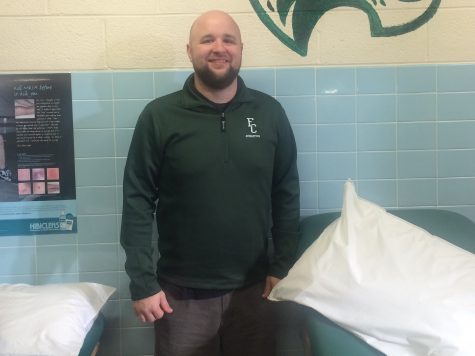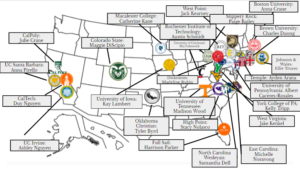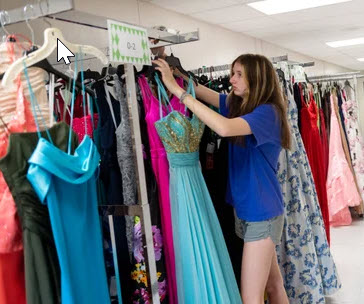Get to Know More About Athletic Trainer Mr. Ivey
January 25, 2017

With all the practices, games, and other sporting events that take place in the school every day, it becomes easy to forget all of the people and components that go in to make everything possible. Our athletic trainer, Mr. Jake Ivey, is someone who is an instrumental part of Falls Church athletics. He enables us to play all of the sports that we love, through attending to our injuries. I asked him some questions to inquire more about his job, and the role that he plays in FC athletics.
Q. Why is it important for schools to have athletic trainers?
A. Schools that have athletic trainers fall in the bottom half of the country when it comes to injury rates. The main responsibility of athletic trainers (ATC) is to prevent or decrease the severity of injuries. With athletic trainers in the school, we can work with the students on a day to day basis. This usually means that the athletes can return back to participating at a faster rate than if an ATC was not in the school. Athletic trainers educate athletes and parents on the wide array of injuries that they can handle and how they work in conjunction with doctors on treatment plans.
Q. What are some of your daily duties that come with the job?
A. Some of my daily duties are cleaning and sanitizing of the treatment tables, counters, and equipment. Also, I have paperwork to do. All injuries and treatments have to be logged and put
into the county injury tracking software. This takes up most of my time before school gets out. After school gets out, it is a madhouse evaluating and treating all of the injuries that we have going on.
Q. How has your field changed with the increased emphasis on head related injuries such as concussions?
A. Over the last 10-20 years there has been a huge change in the athletic trainer’s role in treating concussions. In the past, ATC would defer a lot to the pediatrician or neurologist. We now play larger role in that we can see the patient on a day-to-day basis. This makes it easier to make the subtle changes to daily activity to have them return to the field as well as the classroom as quick as possible. There are a lot more ATCs working in concussion clinics all over the country, and this is because they are being seen as a profession that can make a difference.
Q. For people interested in pursuing this as a career, what should they focus on in their education?
A. Classes that you would need to study are the physical sciences, anatomy/physiology, biophysics (this is physics applied to the body), biomechanics (how the body moves), and chemistry.”
Q. What program did you graduate from and are there any continuing education requirements for your field?
A. I received two Bachelor’s Degrees in Kinesiology from Georgia Southern University and a Master’s Degree in Education from Columbus State University. Due to the ever-changing aspect of medical professions, there are tons of continuing education opportunities and requirement. Every two years I have to have 75 credits of continuing education to keep my certification.”
As you can see, Mr. Ivey has plenty of roles and responsibilities that he must handle on a day to day basis. Knowing all the hard work that he does allows us to feel more thankful and to be more grateful for his presence.




